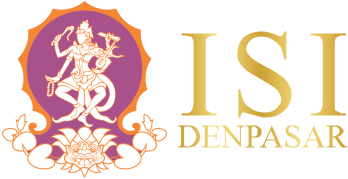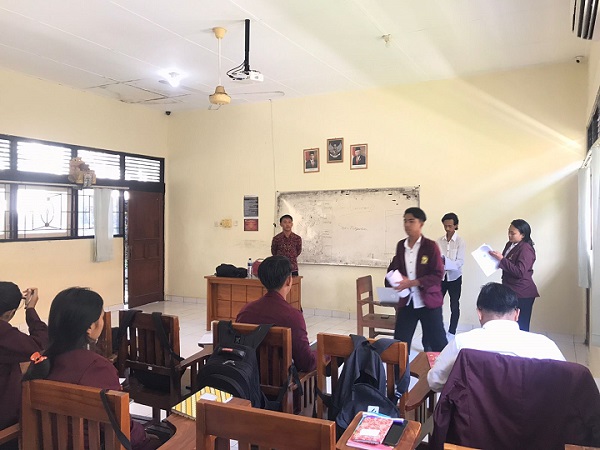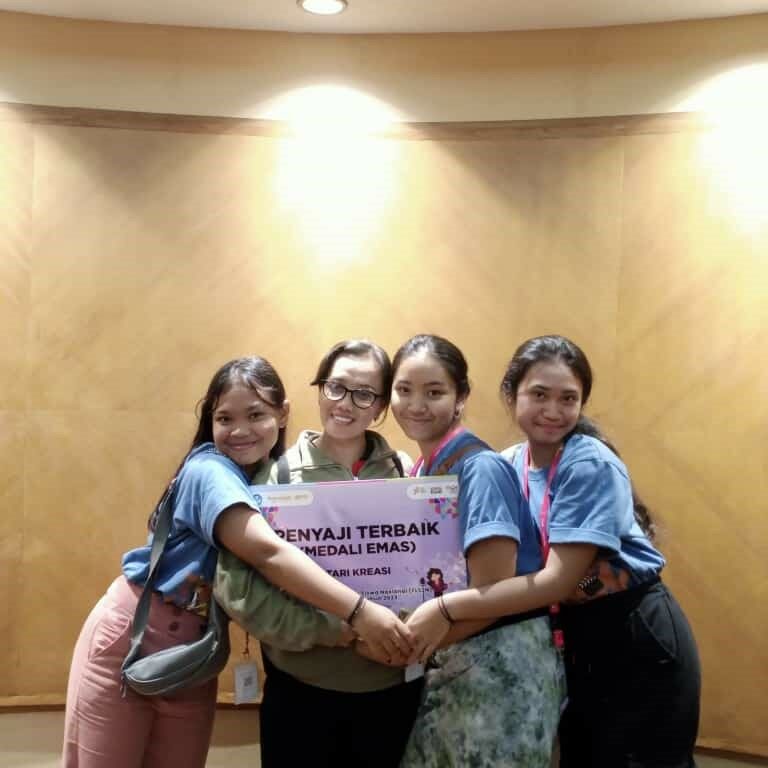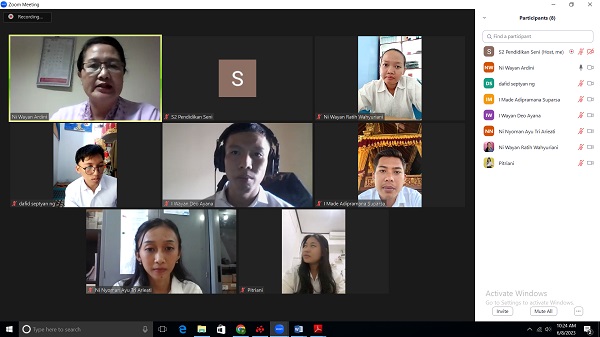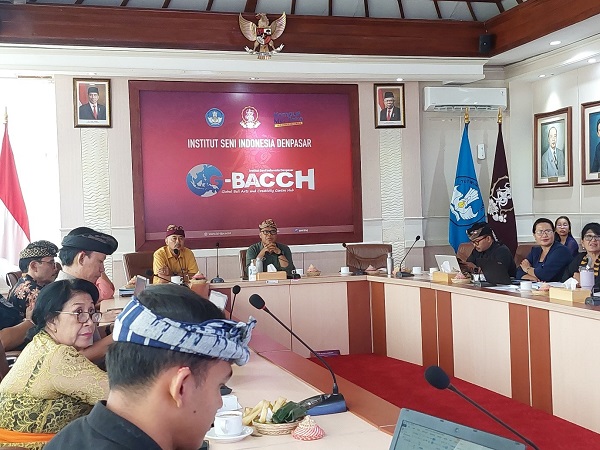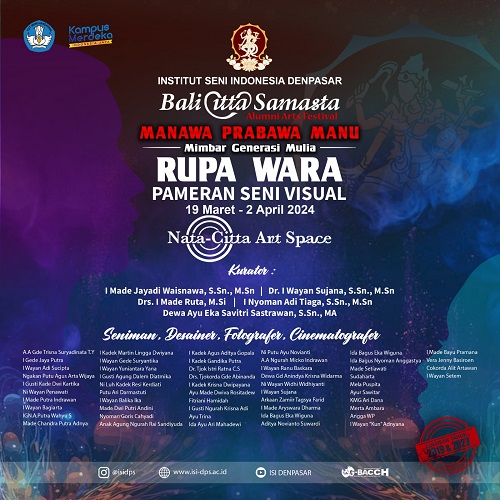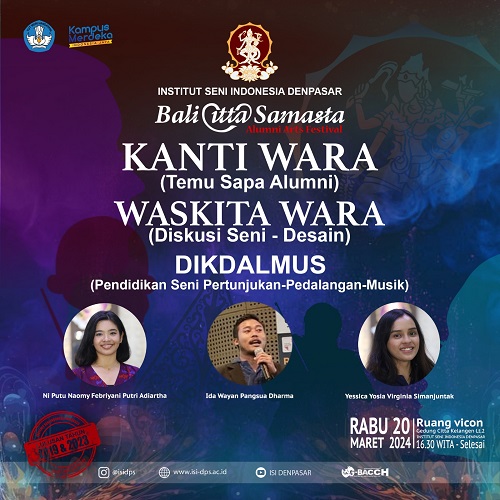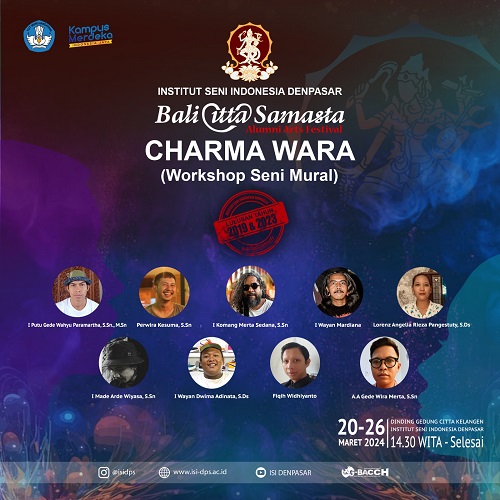Kiriman : Ni Ketut Dewi Yulianti,S.S.,M.Hum
Abstract
This paper is intended specially for the students of Darmasiswa RI program who study at ISI ( Institut Seni Indonesia/ The Indonesian Institute of the Arts) Denpasar who need to master Bahasa. Bahasa will help them in getting the lesson more easily and in communicating with the society more confidently.
Some steps are recommended in this paper. And before having speaking skill, listening skill becomes an important skill besides writing and reading ones. Mastering cross cultural understanding is also a need for learners as language and culture are inseparable. Understanding about the culture of Indonesia will minimize misunderstanding due to cultural differences.
I.INTRODUCTION
This paper is aimed at describing the steps in learning Bahasa, especially for the students of Darmasiswa RI program who study at ISI ( Institut Seni Indonesia/ The Indonesian Institute of the Arts) Denpasar. Understanding the language, in this case bahasa Indonesia (Indonesian language) will be fun when learners feel its importance and significance.
Fisrt of all, let us discuss about why the students should learn Bahasa. By mastering Bahasa, the students will be able to attend the class and get lesson more easily and they will also be able to communicate with the society more confidently.
The students will be able to speak Bahasa well, after doing some steps described in this paper. In learning Bahasa as learning other languages, before having speaking skill, listening skill becomes an important skill besides writing and reading ones. In addition to those four skills, learners are expected to master a cross cultural understanding as well. Cross cultural understanding simply refers to the basic ability of people to recognize, interpret and correctly react to people, incidences or situations that are open to misunderstanding due to cultural differences.
The problem under concern is what steps should be undergone by learners in attaining their intention to master Bahasa?
II.ANALYSIS
In general, when students want to learn Bahasa, they have to start from understanding words, sound changes in complex words, words-forming processes, affixes, phrases, clauses, and sentences before building a speech. (see Sneddon,1996: 8).
WORDS
Words can be simple or complex. A word can be complex in a number of ways. It can consist of reduplicated bases, such as buku-buku ‘books’, rumah–rumah ‘houses’, etc.
PHRASES
A phrase is a group of words which is grammatically equivalent to a single word, being able to occur in the same place as that word. Example: Kedua buku ini ‘these two books’.
CLAUSES
A clause is a construction which contains a predicate and, with some minor exceptions, a subject. A clause is either independent or dependent. Example: Dia guru ‘She/he is a teacher’.
SENTENCES
A sentence is a construction which is grammatically complete; it can stand alone as a complete utterance (although it may be closely linked to what has gone before). A sentence expresses a statement, question, command, or exclamation. Apakah dia sudah makan? ‘Has she/he eaten?’
After understanding how the words, phrases, clauses, sentences are used, learners should also learn about the culture of Indonesia, since language and culture are inseparable, and by understanding the culture will help them to communicate nicely without misunderstanding. Practice makes perfect. The best way of improving the fluency in speaking Bahasa is by practicing a lot.
III. CONCLUSION
In general, when students want to learn Bahasa, they have to start from understanding words, sound changes in complex words, words-forming processes, affixes, phrases, clauses, and sentences before building a speech. Besides, they also should understand about the culture of Indonesia because cross cultural understanding plays a significant role in communication. When the students learn Bahasa, at the same time they should learn about the culture of Indonesia.
Bibliography
Reynolds, Sana & Deborah Valentine. 2004. Guide to Cross-Cultural Communication. New Jersey: Pearson Education
Sneddon, James Neil. 1996. Indonesian Reference Grammar. Australia: Allen & Unwin Pty Ltd

